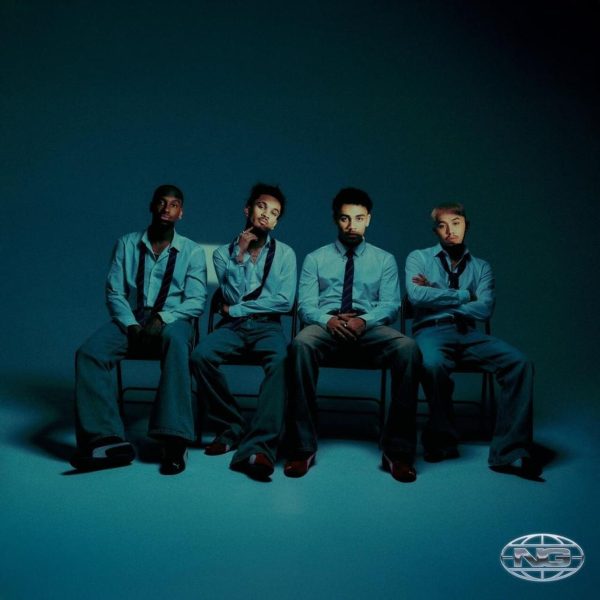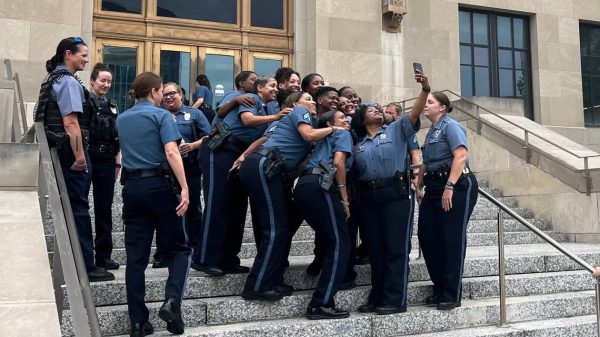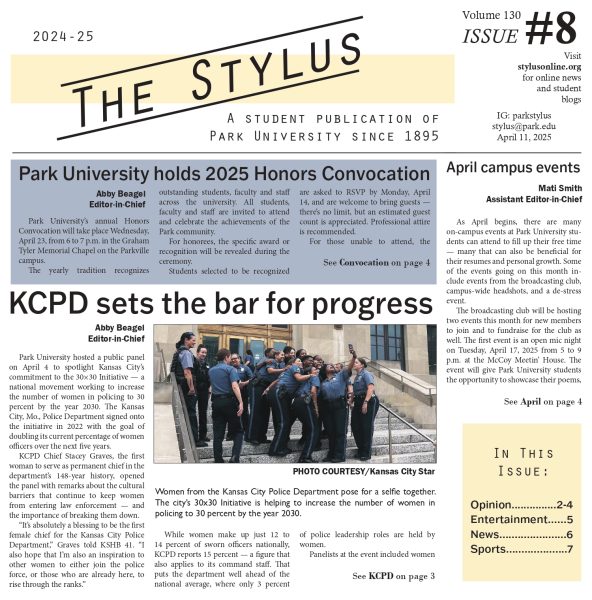Conversation partners brings together international and domestic students
Going to a new country where you have a hard time speaking the language and not many people speak your native language can be difficult. Conversation Partners is a new program at Park University that brings together students of all cultures, both international and domestic, to share their experiences and practice their English language skills with each other, on- on-one.
The program’s 22 members pick their own partner and meet once a week for 30 minutes at a time to talk. Even though students do get to pick their own partners, they do not have the same partner every week. They switch partners every so often so that every member gets to have a conversation with each other.
“Each partner is very nice,” said Chinese music performance major Gin Lei, a freshman. “I think it’s a good way to communicate with each other,” she said.
The scheduling is extremely flexible. Students arrange a meeting with their partner on their own, which means they can schedule their meeting between classes, in the morning for coffee, or they can go grab lunch together.
Conversation Partners offers a wide range of benefits for not only the international student, but the domestic student as well.
“It’s a chance for students to meet other students,” said Amy Jenkins, director of the English language and culture institute at Park University. “It’s a chance for a cultural exchange between two people. It’s an opportunity to make new friends, for international students to learn more about Park and America, and for domestic students to learn more about the international student’s home country, their perspectives and views,” said Jenkins.
The group also allows international students to meet with their partners and listen to different American accents and practice their speaking skills with feedback and corrections from the domestic student.
If Conversation Partners sounds like something you would be interested in, it is not too late to join. You can join at any time, and be included in meeting new friends from all over the world by contacting either Amy Jenkins at amy.jenkins@park.edu or Michael House at michael.house@park.edu and telling them you are interested.
Your donation will support the student journalists of Park University. Your contribution will allow us to cover our annual website hosting costs, freeing up other funds for equipment, printing and training.










lance johnson • Mar 11, 2018 at 1:44 pm
I taught on a university campus in China and found that both our music and movies are great teaching tools. In China, students are reluctant to ask or answer questions in class…a cultural thing that can be frustrating to a teacher. One day I showed the romantic Julia Roberts’ (they love her there!) movie “Nottingham Hill” and would stop in the middle of a scene and ask questions about it and have them comment on it, which helped motivate them to speak up. And at times I would ask for volunteers to act out the same little scene in their own words, and again they were motivated. Here’s another assignment. Search the Internet for “Sinatra – All My Tomorrows.” Listen to how this famous American singer elongated his words—especially vowel sounds—to give added importance, rhythm, and clarity. Sing or speak along with him to practice the same effect. Nice, huh? He mined for gold in his words. In music circles, Sinatra was known for what they call his “phrasing,” which is really what we’ve been talking about in this section.”
Here’s another assignment. Search the Internet for “Sinatra – All My Tomorrows.” Listen to how this famous American singer elongated his words—especially vowel sounds—to give added importance, rhythm, and clarity. Sing or speak along with him to practice the same effect. Nice, huh? He mined for gold in his words. In music circles, Sinatra was known for what they call his “phrasing,” which is really what we’ve been talking about in this section.”
I also showed “My Fair Lady,” the story of a vagrant English woman learning to speak like the queen. I had them memorize and speak the famous line “The rain in Spain falls mainly on the plain” with the same queenly accent as Audrey Hepburn did. That motivated them as we applauded their efforts…more confidence building.
I also had my students sing along with some famous recorded music that I talk about in my new worldwide book/ebook “What Foreigners Need To Know About America From A To Z: How to Understand Crazy American Culture, People, Government, Business, Language and More.” Endorsed by ambassadors, educators, and editors, it has chapters on English grammar and speech that identify the key problems common to foreigners (and Americans!) and how they can polish their communication skills. Love of music is universal, especially with students, so tying in learning English with music is a GREAT motivator.
Here are several quotes from the book. “Hint: I use recorded music by American singer Nat King Cole in my classes for students to sing along with him. His diction is distinct and the songs are slow. I have seen his CDs in shops overseas, so I know they are available. If not, listen on the Internet or purchase an audio CD or MP3 download from Amazon.com at http://amzn.to/KingCole.”
This excerpt relates to elongating one’s vowels, a common problem around the world: “
Good luck to all who want to learn one of the world’s most difficult languages.